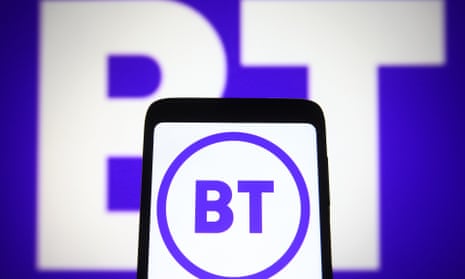The government says it is “monitoring the situation carefully” and “will not hesitate to act if required to protect our critical national telecoms infrastructure”. Does this mean Patrick Drahi of Altice, now with 18% of BT in his back pocket, can forget any idea of buying the company outright?
Let’s hope so. For the first time in years, BT, if it runs its business well, looks set up to satisfy the demands of all its main constituencies. Customers and the government get £15bn of fibre investment over the next five years. The shareholders, after a (too) long standoff with regulator Ofcom, have the “fair bet” terms, covering future broadband pricing, that successive BT managements have argued are critical to getting the fibre in ducts.
Better still from a public policy perspective, regulatory generosity to BT has not been so lavish that it has deterred others from having a run. Mike Fries, the chief executive of Liberty Global, which owns Virgin Media, said last month that wholesale broadband in the UK was “ripe for the picking”. Add the smaller “alt-net” providers and you have what Ofcom and the government have sought for years: something resembling a race in fibre.
It is hard to see what a takeover of BT by Drahi would add. Altice has helped to build broadband networks in the US, France and Portugal but control from overseas by a heavily borrowed private company is not what BT needs. The UK company is not on its knees like Telecom Italia, which may be about to succumb to a private equity takeover. BT should have started its fibre rollout earlier but, at this point, a target of reaching 25m premises by 2026 counts as reasonably slick. Distractions would be unhelpful.
For the time being, Drahi is smiling sweetly and expressing admiration for BT’s management, and Tuesday’s statement means he’s offside as a bidder anyway for six months unless somebody else has a pop. But Drahi is not usually the type to sit passively in the wings for ever; the “creeping control” theory is the one to focus on.
The government should not be afraid to use its powers of intervention under the new National Security and Investment Act. The legislation could almost have been written with BT in mind.
How the banks were let off the hook
Almost a decade after the event, the story can be told: the Treasury did the big banks an enormous favour by putting pressure on the financial regulator to water down a compensation scheme for small businesses that had been mis-sold interest rate swaps.
The 493-page report by John Swift QC is an instructive read on how “independent” financial regulation works in practice. Treasury officials wondered aloud how a potential huge compensation bill might be reduced. Then, miraculously, the Financial Services Authority, as it then was, concluded that “sophisticated” purchasers of the swaps, which became hideously expensive when interest rates fell in the financial crash, shouldn’t be compensated. Result: a potential £10bn bill for the banks became £2.2bn.
Naturally, the regulator could offer a justification of sorts: by drawing a line, it secured a settlement and got money quickly to affected businesses. Come on, though, the admission on Tuesday by today’s Financial Conduct Authority of “clear shortfalls in processes, governance and record keeping” and “a lack of transparency” is damning. The banks were let off the hook.
Rentokil executes a big deal
See, the UK does have world-leading companies that bestride the globe and are capable of buying American rivals in multibillion-dollar deals. Catching rats and destroying termites may not represent the pinnacle of 21st-century advancement but, hey, they all count.
Rentokil Initial’s $6.7bn (£5.07bn) purchase of Memphis-based Terminix is also a startling comeback for a company that was a stock market star in the 1990s before getting lost in complexity, taking a misguided detour into parcel deliveries, and dicing with extermination itself.
When he took over as chief executive in 2013, Andy Ransom inherited a still-unresolved mess and a Rentokil share price that was 98p. The price now, even after Tuesday’s 12% drop, is 548p. The recovery hasn’t required rat-like cunning; just quiet operational improvement.
Therein lies the slight worry about the Terminix purchase. Having made 220 small acquisitions since 2016, Rentokil is now spending a large sum on a big one at a 47% premium to the target’s last share price. It’s a change to a winning formula.
Given Ransom’s record, though, Rentokil’s investors should probably swallow any doubts. This is hardly a trip into the unknown. North America is the world’s biggest pest control market and Rentokil already operates there. Shareholders should back a show of ambition.

